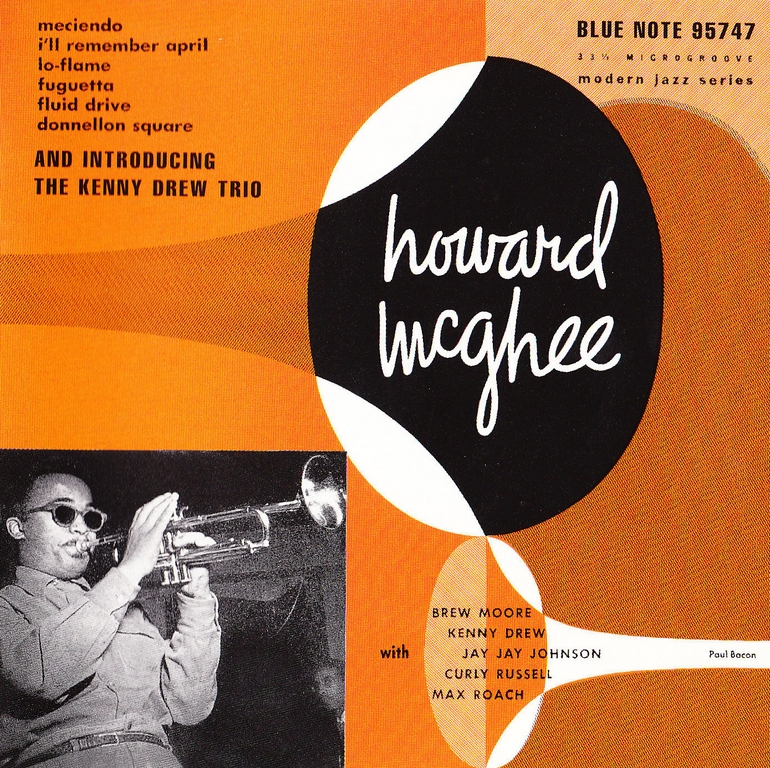
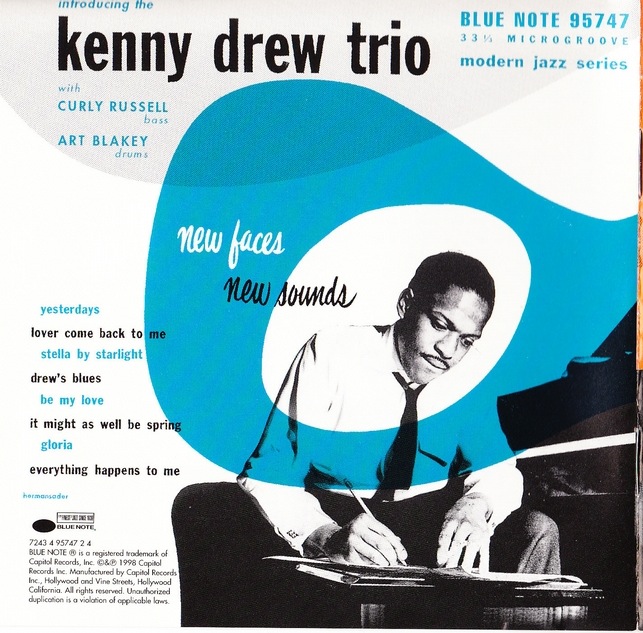
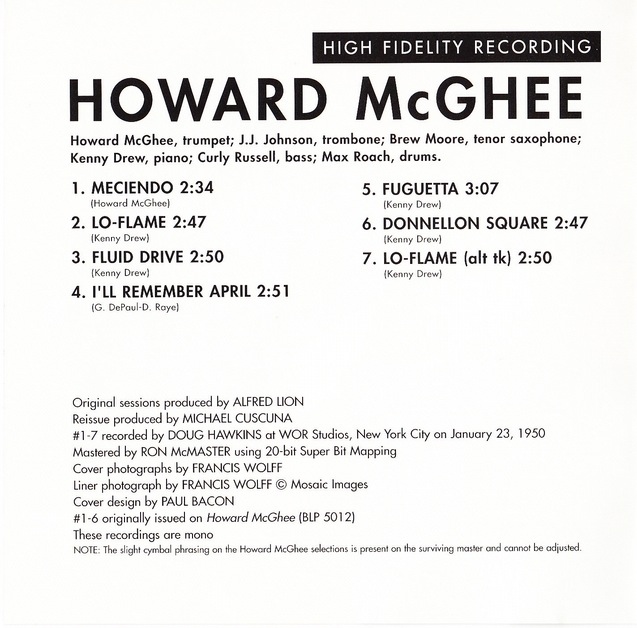
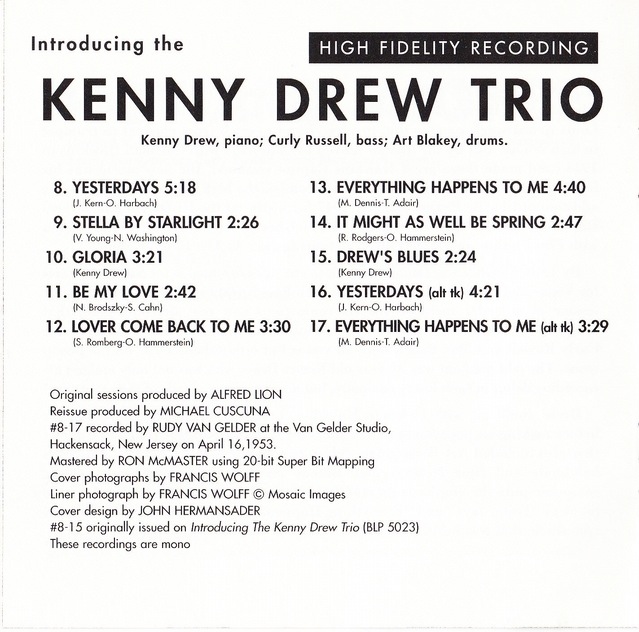
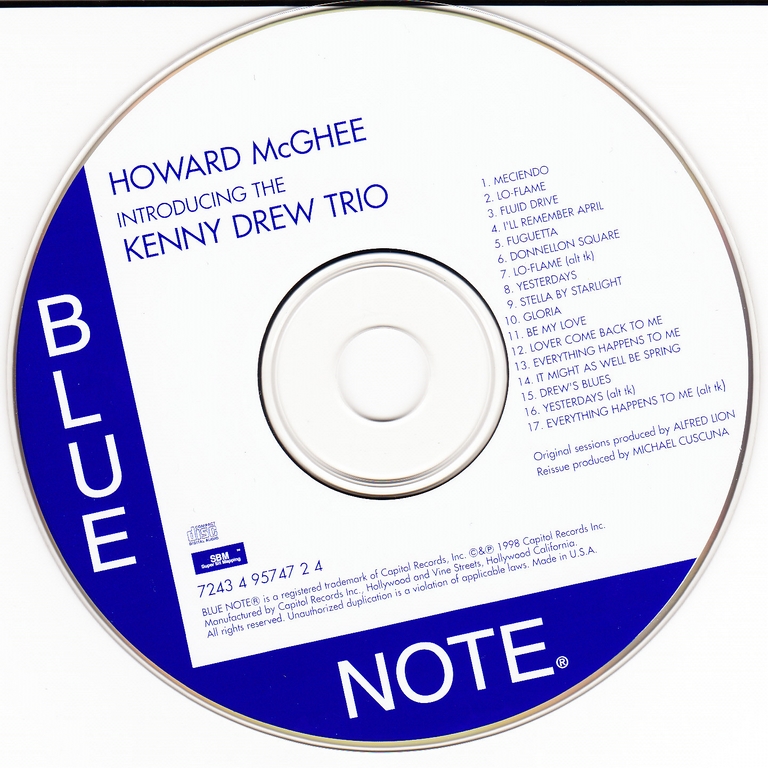
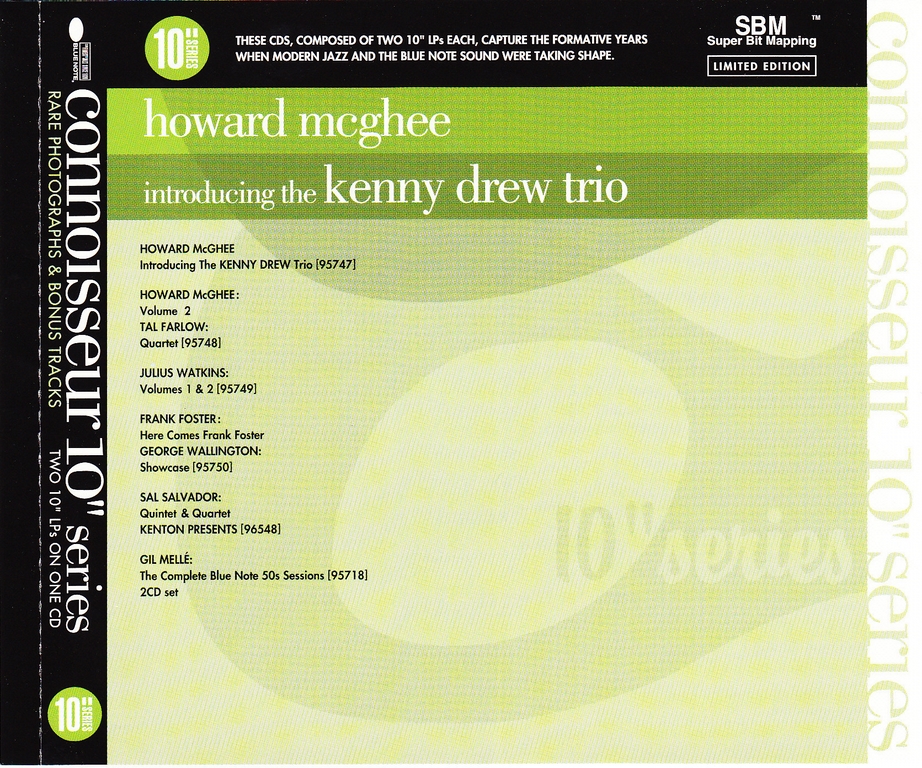
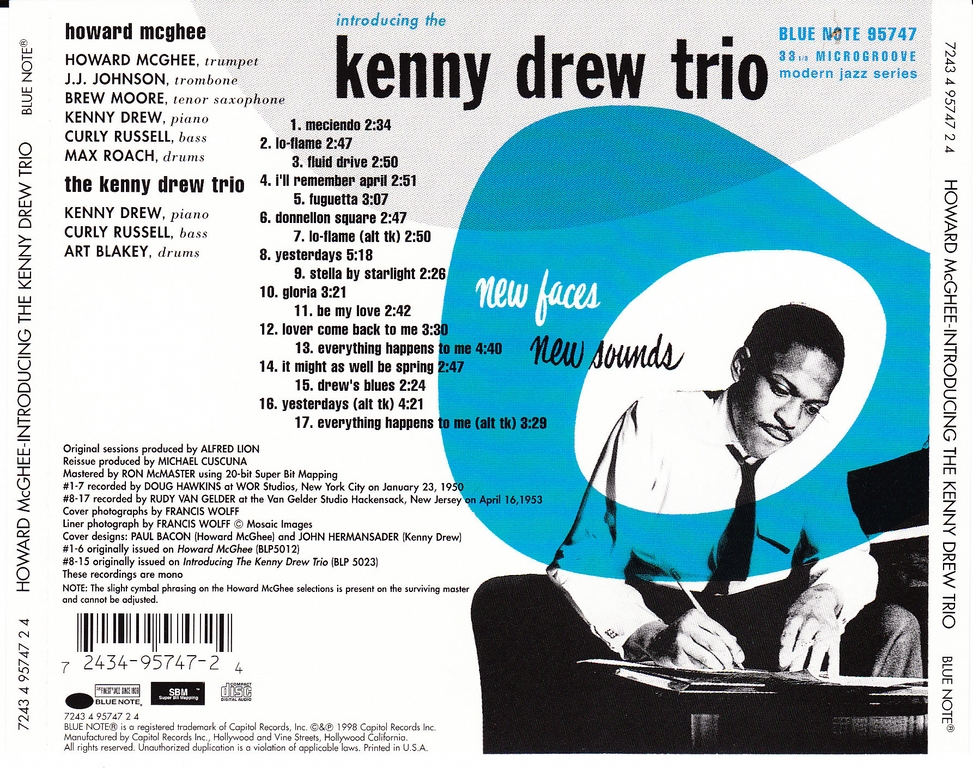
BOOKLET
Here’s another from the Blue Note “two-fer” series.
Howard McGhee
01 – Meciendo
02 – Lo-Flame
03 – Fluid Drive
04 – I’ll Remember April
05 – Fuguetta
06 – Donellon Square
07 – Low-Flame (alt.)
Brew Moore – tenor sax
Howard McGhee – trumpet
JJ Johnson – trombone
Kenny Drew – piano
Curly Russell – bass
Max Roach – drums
Recorded: January 23, 1950 Hackensack, NJ
Introducing The Kenny Drew Trio
08 – Yesterdays
09 – Stella By Starlight
10 – Gloria
11 – Be My Love
12 – Lover Come Back To Me
13 – Everything Happens To Me
14 – It Might As Well Be Spring
15 – Drew’s Blues
16 – Yesterdays (alt.)
17 – Everyhting Happens To Me (alt.)
Kenny Drew – piano
Curley Russell – bass
Art Blakey – drums
Recorded: April 16, 1953 Hackensack, NJ
Ripped from the CD: Blue Note Connoisseur 7243 4 95747 2 4
AMG Biography of Howard McGhee by Scott Yanow
During 1945-1949, Howard McGhee was one of the finest trumpeters in jazz, an exciting performer with a sound of his own, who among the young bop players, ranked at the top with Dizzy Gillespie and Fats Navarro. The “missing link” between Roy Eldridge and Fats Navarro (Navarro influenced Clifford Brown who influenced most of the post-1955 trumpeters), McGhee originally played clarinet and tenor, not taking up trumpet until he was 17. He worked in territory bands, was with Lionel Hampton in 1941, and then joined Andy Kirk (1941-1942), being featured on “McGhee Special.” McGhee participated in the fabled bop sessions at Minton’s Playhouse and Monroe’s Uptown House, modernizing his style away from Roy Eldridge and towards Dizzy Gillespie. He was with Charlie Barnet (1942-1943), returned to Kirk (where he sat next to Fats Navarro in the trumpet section), and had brief stints with Georgie Auld and Count Basie before traveling to California with Coleman Hawkins in 1945; their concise recordings of swing-to-bop transitional music (including “Stuffy,” “Rifftide,” and “Hollywood Stampede”) are classic. McGhee stayed in California into 1947, playing with Jazz at the Philharmonic, recording and gigging with Charlie Parker (including the ill-fated “Lover Man” date) and having an influence on young players out on the Coast. His Dial sessions were among the most exciting recordings of his career, and back in New York he recorded for Savoy and had a historic meeting on record with Navarro in 1948 on Blue Note.
Eventually, drugs began to affect McGhee’s career. He traveled on a USO tour during the Korean War, recording in Guam. McGhee also had sessions for Bethlehem (1955-1956) but was inactive during much of the ’50s. He recorded some strong dates for Felsted, Bethlehem, Contemporary, and Black Lion during 1960-1961, and on a quartet outing for United Artists (1962), but (with the exception of a Hep big band date in 1966) was largely off records again until 1976. He had a final burst of activity during 1976-1979 for Sonet, SteepleChase, Jazzcraft, Zim, and Storyville, but by then, McGhee was largely forgotten and few knew about his link to Fats Navarro and Clifford Brown.
AMG Biography of Kenny Drew by Scott Yanow
A talented bop-based pianist (whose son has been one of the brightest pianists of the 1990s), Kenny Drew was somewhat underrated due to his decision to permanently move to Copenhagen in 1964. He made his recording debut in 1949 with Howard McGhee and in the 1950s was featured on sessions with a who’s who of jazz, including Charlie Parker, Coleman Hawkins, Lester Young, Milt Jackson, Buddy DeFranco’s quartet, Dinah Washington, and Buddy Rich (1958). Drew led sessions for Blue Note, Norgran, Pacific Jazz, Riverside, and the obscure Judson label during 1953-1960; most of the sessions are available on CD. He moved to Paris in 1961 and relocated to Copenhagen in 1964 where he was co-owner of the Matrix label. He formed a duo with Niels-Henning Orsted Pederson and worked regularly at the Montmartre. Drew recorded many dates for SteepleChase in the 1970s and remained active up until his death.
AMG Review by Scott Yanow
This 1998 CD has all of the music from two formerly scarce 10″ LPs. Trumpeter Howard McGhee heads an all-star group that includes trombonist J.J. Johnson, tenor saxophonist Brew Moore, pianist Kenny Drew, bassist Curly Russell, and drummer Max Roach on “I’ll Remember April,” an original by the leader and four songs (plus an alternate take) by Drew, who was making his recording debut. Because it was the tail-end of the 78 era, all of the performances are between 2:34 and 3:07 in length but the concise solos are generally quite strong. Although McGhee gets the top billing on this CD, the second half of this disc is actually by the Kenny Drew Trio (with Russell and drummer Art Blakey) from three years later, Drew’s debut as a leader. Other than his “Gloria” and the basic “Drew’s Blues,” all of the music (which is augmented by two alternate takes) is standards including “Be My Love,” “Yesterdays,” and a surprisingly heated rendition of “It Might As Well Be Spring.” Easily recommended to bebop collectors.
